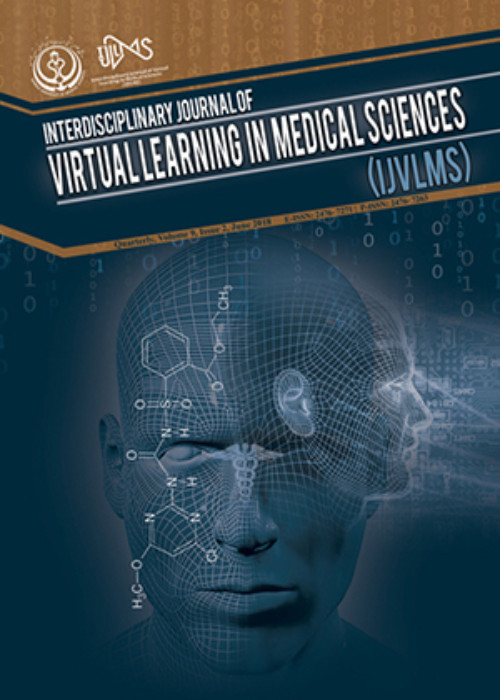On the Correlation between Problem-solving Skills and Online Information-seeking Behavior of English for Specific Purposes Students
Author(s):
Article Type:
Research/Original Article (دارای رتبه معتبر)
Abstract:
Background
Individuals’ information-seeking behaviors differ, depending on whether they perceive themselves as effective problem-solvers or not. As such, the present study examined the relationship between problem solving skill and online information-seeking behavior of students of medical sciences in general and English for specific purposes (ESP) courses. Methods
The present study is an applied research that adopted a survey method. The participants were 232 students of Kermanshah University of Medical Sciences and faculty of paramedical sciences, Islamic Azad University, Kermanshah branch. This research was conducted in 2019- 2020 during the time of COVID-19. The sampling method in this study was available sampling. The researchers selected the students who used the Internet to meet their information needs in their ESP courses. A problem- solving questionnaire and a researcher-made scale were employed in the study to investigate the participants’ information-seeking behavior. To determine the reliability of the Problem-solving questionnaire and online information-seeking behavior, we used Cronbach’s alpha coefficient. The results of the test indicated that the reliability of the problem-solving questionnaire was 0.852, and that of the online information-seeking behavior questionnaire was 0.778, which is considered an acceptable level. Data were analyzed using descriptive statistics including frequency, percentage and mean and inferential statistics including Pearson correlation matrix and multiple regression using SPSS software version 22.Result
The findings showed that there was a correlation between the scales of problem solving including, problem solving confidence (P<0.001), approach‐avoidance style (P<0.001), and personal control (P<0.001) with and information-seeking behavior in general and ESP courses. In addition, the results of multiple regression analysis revealed that the variable of problem solving confidence (β=0.275, P<0.05) and personal control (β=- 0.179, P<0.05) could significantly explain information-seeking behavior of paramedical sciences students in general and ESP courses; however, the avoidance style had no contribution to this study (P>0.05). Conclusion
Medical students’ success in general and ESP courses need their proper online information seeking behavior which can result in improvement in their problem solving skill. The findings may provide deeper insights regarding the potential relationship between problem solving skill and online information-seeking behavior of students of medical sciences. More specifically, the role of computer- assisted language learning (CALL) in ESP courses is emphasized.Keywords:
Language:
English
Published:
Interdisciplinary Journal of Virtual Learning in Medical Sciences, Volume:14 Issue: 1, Mar 2023
Pages:
31 to 46
magiran.com/p2575843
دانلود و مطالعه متن این مقاله با یکی از روشهای زیر امکان پذیر است:
اشتراک شخصی
با عضویت و پرداخت آنلاین حق اشتراک یکساله به مبلغ 1,390,000ريال میتوانید 70 عنوان مطلب دانلود کنید!
اشتراک سازمانی
به کتابخانه دانشگاه یا محل کار خود پیشنهاد کنید تا اشتراک سازمانی این پایگاه را برای دسترسی نامحدود همه کاربران به متن مطالب تهیه نمایند!
توجه!
- حق عضویت دریافتی صرف حمایت از نشریات عضو و نگهداری، تکمیل و توسعه مگیران میشود.
- پرداخت حق اشتراک و دانلود مقالات اجازه بازنشر آن در سایر رسانههای چاپی و دیجیتال را به کاربر نمیدهد.
In order to view content subscription is required
Personal subscription
Subscribe magiran.com for 70 € euros via PayPal and download 70 articles during a year.
Organization subscription
Please contact us to subscribe your university or library for unlimited access!


